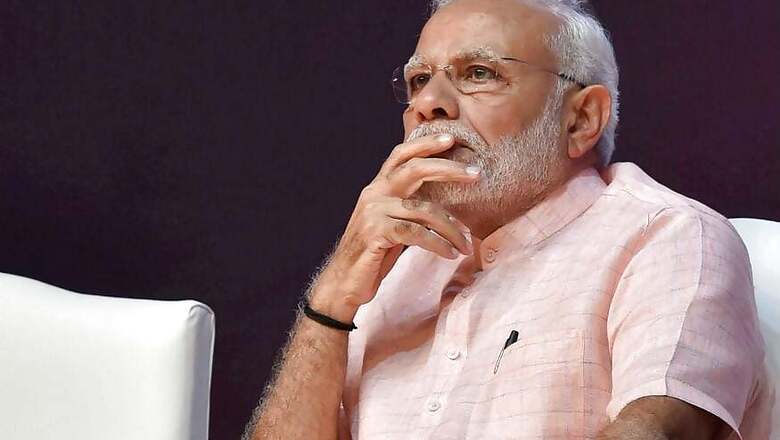
views
New Delhi: In a few hours from now, the BJP may send shockwaves throughout the country by moving a constitutional amendment bill to clear way for a 10% reservation for economically backward upper castes in jobs and education.
A few media outlets on Monday carried reports attributed to unnamed sources within the BJP, claiming that the party would try to secure, through Parliament, reservation over and above the quota that has already been granted to various social sections.
Details of the constitutional amendment and of the reported bill are still unknown, and fraught with constitutional and legal hurdles. But what is known is that this won't be the first attempt by a ruling party to explore ways to push for a class-based reservation among the forward castes, in government jobs and education.
Four such attempts have been made by ruling parties in the Centre in the past. Let us have a look.
1. Narasimha Rao in 1991
The first ever attempt to push a legislation to this effect was made 27 years back ago by a Congress Prime Minister. It was 'the father of India's economic reforms' who first introduced a 10 per cent separate reservation for poor among forward castes by making changes to the OBC reservation policy. He introduced a 10 per cent reservation in public services for economically backward sections of the people, 'not otherwise covered by the scheme of reservation'.
The matter went to Supreme Court the following year and the court ordered restriction of reservations within the 50 per cent limit. The SC declared separate reservations for economically poor among forward castes as invalid in what now is known more popularly as the 'Indra Sawhney case'.
2. AB Vajpayee in 2003
One year before general polls and just a few days before crucial assembly elections in Delhi, Madhya Pradesh, Rajasthan, Chhattisgarh and Mizoram, then Prime Minister AB Vajpayee in August 2003 cleared a bill for setting up a Group of Ministers (GoM) on reservation for the economically backward classes among the forward castes.
The GoM on reservation was headed by the then Deputy Prime Minister LK Advani, finance minister Jaswant Singh, law minister Arun Jaitley, social justice minister Satyanarayan Jaitya, and railway minister Nitish Kumar.
The GoM was to hold wider consultations with other parties and discuss the modalities such as whether to set up a Commission in this regard.
3. AB Vajpayee in 2004
Just a few months before elections, in January 2004, Vajpayee set up a commission to determine criteria for providing reservation to the economically backward classes. Former union home secretary Balmiki Prasad Singh headed the four-member commission. Nothing came of the commission as BJP was replaced by Congress led UPA-I in those elections.
4. Manmohan Singh in 2006
The Congress-led UPA I too tried to explore the idea of providing reservation to forward castes by constituting a commission for economically backward classes in July 2006. The job of the commission was to elicit the views of state governments and union territories, suggest criteria for identification of the economically backward classes, and recommend welfare measures, and quantum of reservation in education and government employment.
The commission, headed by major general (retd) SR Sinho, submitted its report four years later in July 2010. Several news outlets reported the following to be the recommendations of the SR Sinha commission -
- General category poor be given quotas in government jobs and education. For this, the commission recommended a constitutional amendment to breach the Supreme Court's 50 per cent cap on quotas.
- The commission noted that non-income tax payee general category people were economically backward, at par with the OBCs. The commission put their tentative number at 6 crore. They should be treated like OBCs, it held.
- EBC children be made eligible for soft loans for higher education, scholarships, coaching for central and state civil services examinations, subsidized health facilities, and government help in housing sector in the form of soft loans with lower rates of interest.
- Development of skills and vocational training for the EBCs so that they can earn their livelihood, and recommended the setting up of a National Commission for providing financial assistance to EBCs.




















Comments
0 comment